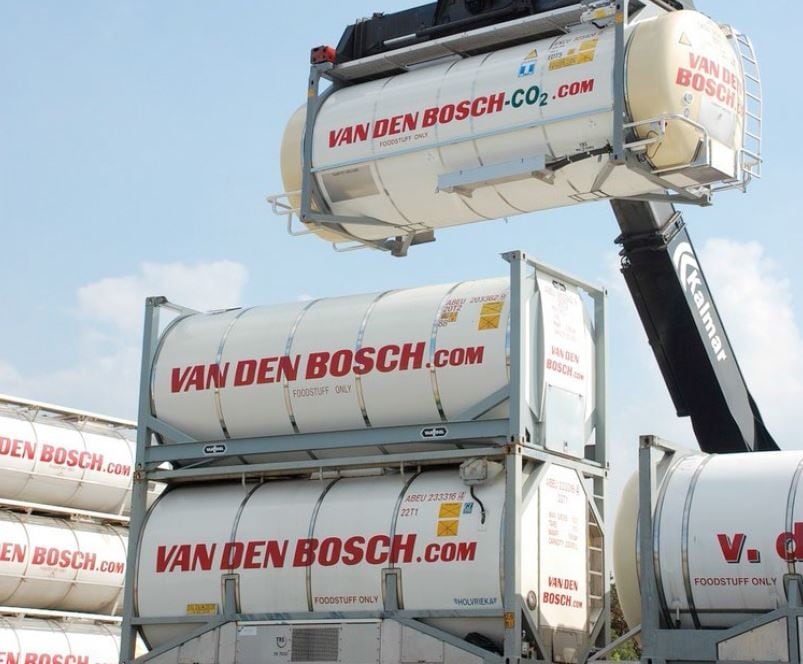This peak in demand means bulk container companies must stick to schedules and deliver to customers in a timely, efficient and cost-effective manner.
Cocoa butter, sugar, fats
Van den Bosch, based in Erp, the Netherlands, works with planning and optimization technology company Quintiq, to plan and coordinate the transportation of bulk products across the supply chain.
Marijke Grevink, senior account manager, Van den Bosch Transporten, told ConfectioneryNews, it transports cocoa liquor, cocoa butter, sugar, fats and chocolate for customers who work across all stages of the chocolate processing industry.
“In the transport of all of these ingredients and semi-finished goods it is important to select the right type of equipment and to control transport conditions like temperatures and transit time,” she said.
“The product must be heated throughout the entire transport process to keep the chocolate liquid in good shape. It is equally important to have skilled drivers that know how to handle chocolate and unload it in the best way possible with a minimum of rest product.
“The entire transport process is developed in such a way that the chocolate will arrive at the manufacturer in the same condition as it left the factory. Quintiq helps Van den Bosch in determining the best route for a transport to ensure the best transport conditions.”
Grevink added its tanks are specially cleaned and dried before loading chocolate and residue water is fatal for this product.
“Chocolate must not solidify or burn, that is why our containers and trailers are insulated and equipped with advanced heating systems,” she said.
“Our drivers know the maximum temperature deviation exactly and always take lead time into account to prevent separation of fat and cocoa mass. Our trailers or tipper trailers provide a minimum residual load which makes scraping out almost superfluous.”
Middle East & Africa
The company, which transports liquid and dry bulk products including raw materials, juices, latex and granules, works across several countries within Europe and is now looking to expand into the Middle East and Africa.
Grevink said 70% of the worlds cocoa production takes place in West Africa and in September 2015 Van den Bosch opened its first non-European office in Dubai.
“Dubai is the ideal location to coordinate the global deep sea transport activities with a focus on Africa, Europe and the Middle East,” she added.
“Last year we also opened ventures in Cape Town and Tema, Ghana. Africa is a major growth market for us.”
She said the transport of raw materials, production and distribution of chocolate for Valentine’s Day already lies behind them.

“The multinationals Van den Bosch works for start producing ice cream for the summer from February onwards. In the spring and summer the production of Advent calendars starts; whereas Easter eggs are produced in the autumn and winter,” said Grevink.
“The summer months are occupied with transport of beverages, juices and beer for festivals. A good harvest of apples and sunflowers results in peaks of apple juice and sunflower oil later in the year. October and November are generally known for the production of luxury goods for the holiday season.”
He added demand is ever increasing, payload is rising, customer requirements more stringent, deliveries need to be just-in-time, and distances are getting longer.
The way Van den Bosch adapts to market development is by focusing on business development, education of employees in different subareas (Van den Bosch Academy, E-learning) and by developing (intermodal) activities.
Last year the company adopted a new strategic approach on product market combination level. Every business unit is now divided into smaller product market combinations (PMCs) and managing the organization on PMC level has led to a smaller approach of markets and to focus on improvements and developments.
“In general, business should be cheaper, better and faster in all aspects,” said Grevink.
“The food industry, including chocolate manufacturers, are looking for more sustainable solutions in a market where demand is ever increasing but the supply of raw materials is decreasing."Save
